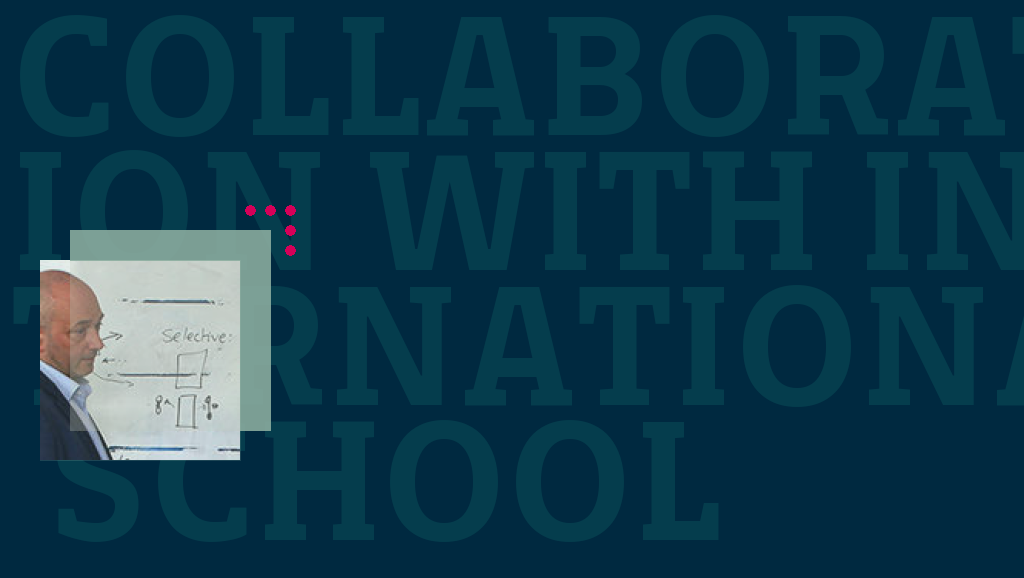During the month of June 2018, the Foundation collaborated with the International School Utrecht (Netherlands) on a series of interventions whose aims were to introduce issues surrounding RI to students of primary and secondary level. The interventions were all carried out by Bassetti Foundation foreign correspondent Jonathan Hankins.
The interventions took place within the school curriculum within different frameworks. These included a workshop during the school’s annual ArtBurst celebration on the subject of the driverless society as recently addressed in the Foundation’s latest White Paper, a discussion about the social implications of nanotechnology within the Diploma Program Business and Management course, and a presentation on sustainability for upper primary school students.
The first intervention took place on Thursday 7 June as part of the school’s ArtBurst celebrations. In this 2 hour workshop Jonathan hankins introduced the argument that the introduction of driverless technology would have broad implications for the entire society. He then introduced the problem of decision-making in moral terms through playing a game based upon the Trolley problem before moving on to discuss the Collingridge Dilemma.
The students asked a lot of pointed questions and raised a host of interesting points, including some criticisms of current governance and management strategies. Suggestions were made about possible advantages in goods transportation, with the concept of morality drawn in to several of the conversations.
To close the workshop the students built model cars that were powered with salt water and had a race.
The students remained attentive throughout the workshop, several raising quite combative questions about the rights of road users and how the drawing of legislation might be influenced.
The second in the series was held on 13 June and involved students from the first year of the Diploma Program. This 45-minute lesson was focused upon nanotechnology, the current situation with regulation and norms and how the development of these forms of technology might play out in the future.
After a brief discussion a question led conversation covered the making of rules and norms both within a professional and legal field, the Collingridge Dilemma and the positioning of nanotechnology within the dilemma model, sustainability and toxicity issues, the development of nanobots, scenario planning as a strategy for RI and much more.
The students raised a lot of questions around issues surrounding the development of this and other technologies and seemed genuinely interested in the fact that nanotech products can be found everywhere but without necessary being understood as such, or more precisely without the majority of the population realizing this or having pondered the possible implications of the introduction of such techniques on such an industrial scale.
Week 4 and 5 of the project involved lessons in the grade 4 classes on the subject of solar power use and decisions faced by families in terms of their sustainability practices. On Wednesday 20th and Monday 25th June Hankins took a lesson within the unit on sustainability.
As part of this unit the students prepare a model whose aim is to demonstrate how different energy sources are used as power. The discussion during the lessons therefore revolved around not only techniques for using solar power but also construction techniques for DIY water heaters, alternatives to current solar panel construction and decisions faced by families that wish to purchase such technology, both for personal use but also within power cooperatives.
The latter part of this discussion very much focused on Hankins’ favoured topic of decision-making processes within systems, a theme he addressed in his recent PhD thesis and that permeates the work of the Bassetti Foundation. The aspect of responsibility within decision-making came through during each of the interventions described above, with the quality of question forming and philosophical reflection shown by the students alongside their technical knowledge making for informative and wide-ranging debate.
From a Foundation perspective this was a rewarding and satisfying collaboration. Science education has long been seen as imperative if we wish to address the question of responsibility in innovation and technological development, and we have long argued that a more inquisitive and better scientifically educated population can only help the cause in working towards responsible innovation.
The International School students certainly demonstrated high levels of critical thinking at all ages, and the unit approach of the International Baccalaureate system certainly offers scope for the drawing out of such philosophical issues within the classroom setting.
We very much look forward to continuing and widening our collaboration with the Dutch education system in the near future.
————-
















